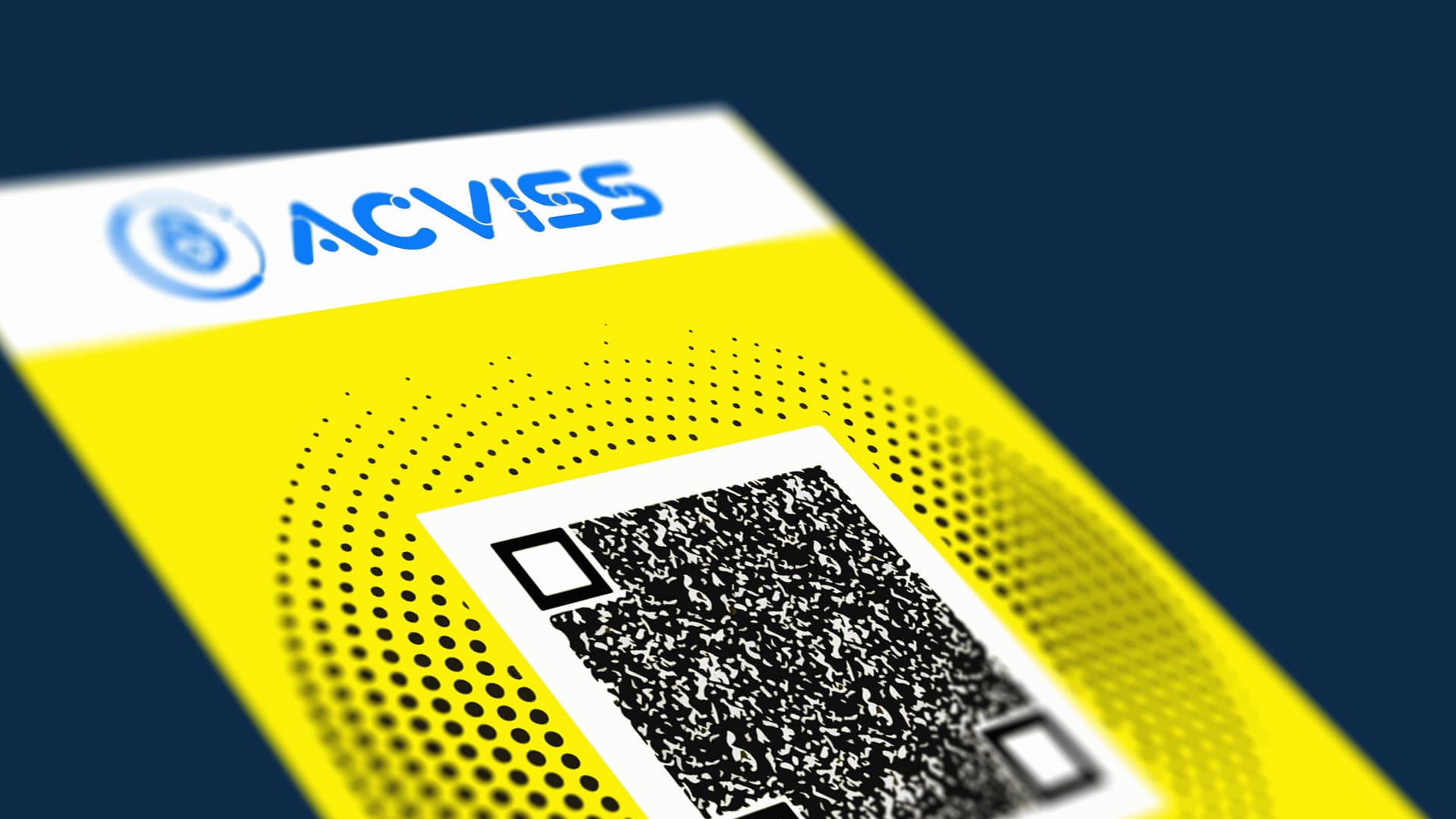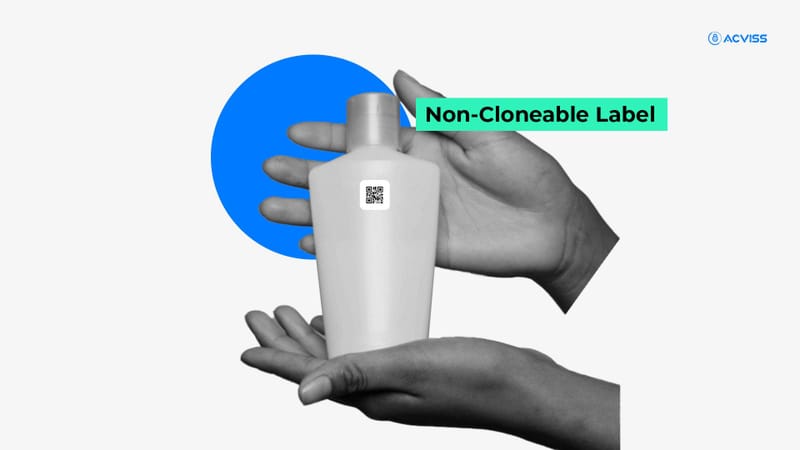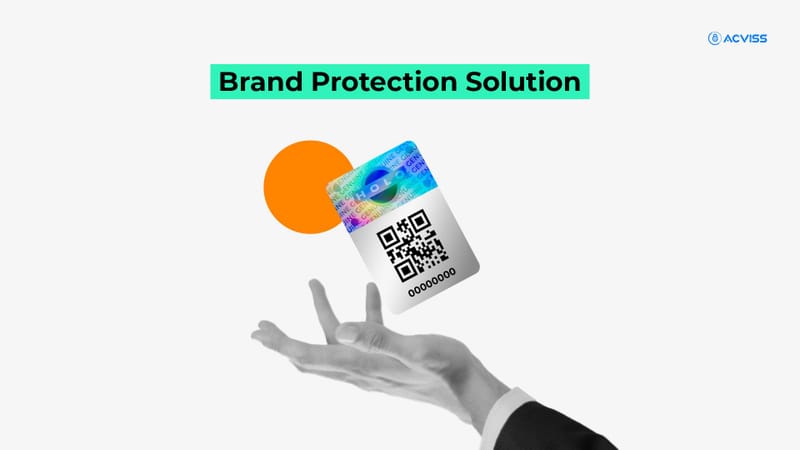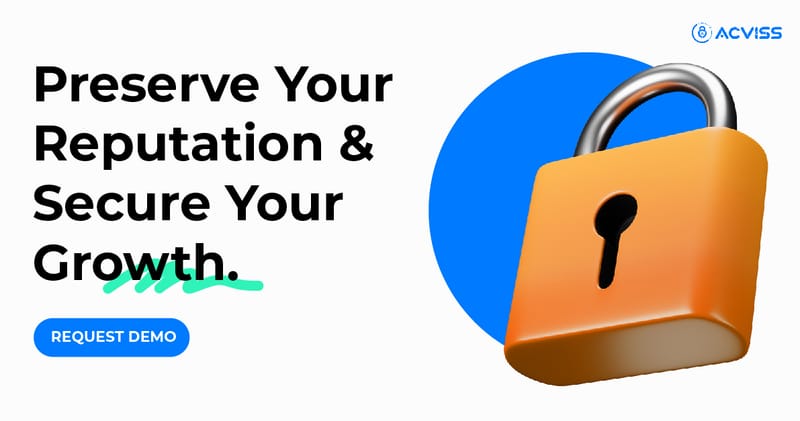How to Choose a Non-Cloneable Label for Your Brand
With social media and the internet taking over the world, every company, from small to big, is accessing digital platforms to expand its online presence, build a brand, and drive success. However, alongside numerous advantages, the social media age presents certain difficulties for companies, including counterfeiting.
Easy access to e-commerce sites, social media platforms, and technology has made counterfeiting an easy way to make money, no matter how unethical and illegal it is. To combat this challenge, brands are increasingly turning to brand protection solutions, such as QR codes and hologram labels. Although these solutions worked out for a while, counterfeiters found their way around as QR codes are easy to replicate.
So, how can you now shield your brand? Thanks to technological developments in brand protection, you can now access non-cloneable labels. These are the state-of-the-art anti-counterfeiting solutions that ensure the security and legitimacy of your products. But with so many choices, picking the best non-cloneable label for your brand becomes a new difficulty.
This article will educate you about non-cloneable labels, their functioning, advantages, and important considerations when choosing one.
What is a Non-Cloneable Label?
The advanced product authentication solution, a non-cloneable label, is a security feature that can be integrated into your products’ packaging to make original products or their packaging difficult or impossible to replicate or counterfeit.
In contrast to easy-to-duplicate traditional labels, non-cloneable labels employ cutting-edge technology and security features to provide unique identifiers that cannot be copied or reproduced. Since they are integrated with unique, impossible-to-copy patterns, materials, or digital codes, they ensure brand protection and assure customers they purchase a genuine item.
How Does a Non-Cloneable Label Work?
Multiple techniques are employed to generate the non-cloneable labels based on the technology being used:
- Physical Unclonable Function (PUF): PUF-based labels depend on microscopic physical structures randomly formed during manufacturing. Now that these structures are intrinsically distinct, they are exploited to provide each label with a distinct trust anchor or fingerprint, making them irreplicable.
- Digital Encryption: Many non-cloneable labels are designed by incorporating encrypted product details containing barcodes or QR codes. These codes' one-time generation limit and connection to a secure database can help prevent QR code duplication.
- Chemical Markers: Another approach is embedding chemical markers into the non-cloneable label. These markers are practically impossible to clone as they are invisible to the naked eye and can only be found using specialist equipment.
- Holographic Patterns: These tamper-proof labels also use complex hologram stickers that are difficult to reproduce. These holograms might incorporate multi-layered images, color-shifting patterns, or microtext.
Must Read: Innovative Packaging Designs to Prevent Counterfeiting
What Makes Non-Cloneable Labels the Best Brand Protection Solution?
When a non-cloneable label is scanned, the unique identifier is verified against a secure database. The product is verified as authentic if the information on the label matches the data in that database. If not, it is marked as counterfeit.
Brands can avail of a host of benefits by using non-cloneable labels, making them one of the unmatched brand protection solutions:
- Unmatched Security: You can ensure unparalleled security by embedding these non-replicable labels on your products. Their robust security features and technology integration ensure that counterfeiters cannot duplicate them, protecting your brand’s integrity.
- Facilitates product traceability: Companies can easily trace and monitor their products throughout the supply chain using non-cloneable labels. By leveraging this capability, you can detect and prevent unauthorised distribution or diversion of your goods, thereby enhancing supply chain security and ensuring the availability of authentic products in the market.
- Legal protection: By using non-cloneable labels, you can have access to concrete evidence of authenticity, which helps manage legal conflicts involving counterfeiting. You can use them as evidence to take legal action against counterfeiters more effectively.
- Gaining customer trust: By using non-cloneable, tamper-proof labels, your customers can easily verify the authenticity of your products. You can protect your brand's reputation and retain consumer loyalty by gaining their trust.
- Cost-effective solution: While non-cloneable labels may initially seem more expensive than traditional labels, the long-term benefits of preventing counterfeiting and preserving your brand’s reputation far outweigh the costs.
How to Choose a Non-Cloneable Label?
It will help to consider the below-given factors to select the right non-cloneable label for your brand:
- Understand Your Product Needs
Before looking into various non-cloneable labels, you should consider the kinds of goods you want to safeguard. Your security requirements can vary with products like luxury items, pharmaceuticals, electronics, or consumer goods.
For instance, high-value items might require more sophisticated labelling technologies, such as PUF, track and trace solutions, or chemical markers. In contrast, lower-cost goods might benefit from holographic or encrypted digital labels.
- Evaluate the Technology
As previously mentioned, non-cloneable labels employ various technologies, including PUF, holograms, chemical markers, etc. Considering each technology's degree of security, ease of integration with your current packaging, and suitability for your brand will be beneficial.
Digital encryption, for instance, might be the best option for products sold online, while combining geo-fencing solutions with non-cloneable labelled products can allow brands to keep an eye on and control their goods’ physical movement within the supply chain.
- Check Compatibility with Existing Systems
You should also evaluate how well the shortlisted non-cloneable label will work with your current supply chain and verification systems. The label’s compatibility with your current infrastructure will lead to a smoother transition with minimised operational disruptions.
- Assess the Cost-Benefit Ratio
While brand protection should be your priority, you shouldn’t ignore the cost factor. You should weigh the cost of implementing non-cloneable labels against the potential losses from counterfeiting. Select the tamper-proof labels that bring long-term value to your brand.
- Customer Experience
All brands aim to deliver a remarkable experience to their customers. When it comes to non-cloneable labels, you should avoid using non-cloneable labels that require complex authentication tools because regular customers might not be able to use them. Instead, choose labels that can be simply scanned with smartphones, enabling buyers to authenticate your goods without hassle.
- Verify the Vendor's Credibility
Always collaborate with a reliable vendor who specialises in offering a robust product authentication solution. It's a good idea to examine their history, customer reviews, product quality, availability of continuing support, and whether the labels are produced to the highest standards.
Yellow Label: A Giant Leap in Non-Cloneable Protection

While selecting the right non-cloneable label, brands often choose among multiple technologies such as PUFs, holograms, chemical markers, or encrypted QR codes. Yellow Label stands out as a specialised variant tailored for customers who require elevated security but with flexibility in deployment and verifiability.
What Is Yellow Label?
Yellow Label is a branded, enhanced, non-cloneable label solution offered by Acviss. It is designed to combine the best of physical and digital security features into a seamless, high-trust badge that can be integrated into your packaging or product surface.
Rather than relying purely on one mechanism (for example, an encrypted QR code or micro-chemical marker alone), Yellow Label mixes layered security features that make cloning, replay attacks, or counterfeiting extremely difficult. It also supports track and trace and product authentication workflows in real time.
Key Features That Make Yellow Label Unique
Layered Authentication: Yellow Label integrates several security mechanisms — such as microstructures, tamper-evident design, and encrypted digital codes — into a single label, increasing resistance to duplication or tampering.
Non-Cloneable Digital Backbone: Behind every Yellow Label lies a cryptographically secure identity, tied to a backend system that verifies authenticity instantly. That means even if someone replicates the physical label superficially, it cannot be matched with the backend database.
Seamless Scanning Experience: Yellow Label maintains smartphone-friendly scan interfaces, so consumers and channel partners can verify authenticity without needing special readers.
Flexible Integration: It can be applied at multiple packaging levels, consumer packs, cartons, or even primary packaging, depending on your brand’s risk map.
Branding & Verification Visibility: Brands can customise the visible aspects of Yellow Label (such as colour accents, logo zones, or microprinting) to make the verification badge part of the brand identity. That elevates it from a security element to a trust signal for customers.
All-in-All
Due to increasing counterfeiting cases, selecting the best non-cloneable label has become crucial to safeguarding your brand.
Acviss's Uniqolabel stands out among the leading anti-counterfeiting solutions, providing cutting-edge technology that guarantees the authenticity and security of your goods. Thanks to their sophisticated features and ease of integration, these labels are a simpler, dependable solution that your supply chain can easily adopt for real-time product traceability. So, wait no more! Reach out to Acviss today to safeguard your brand’s future with Uniqolabel.



